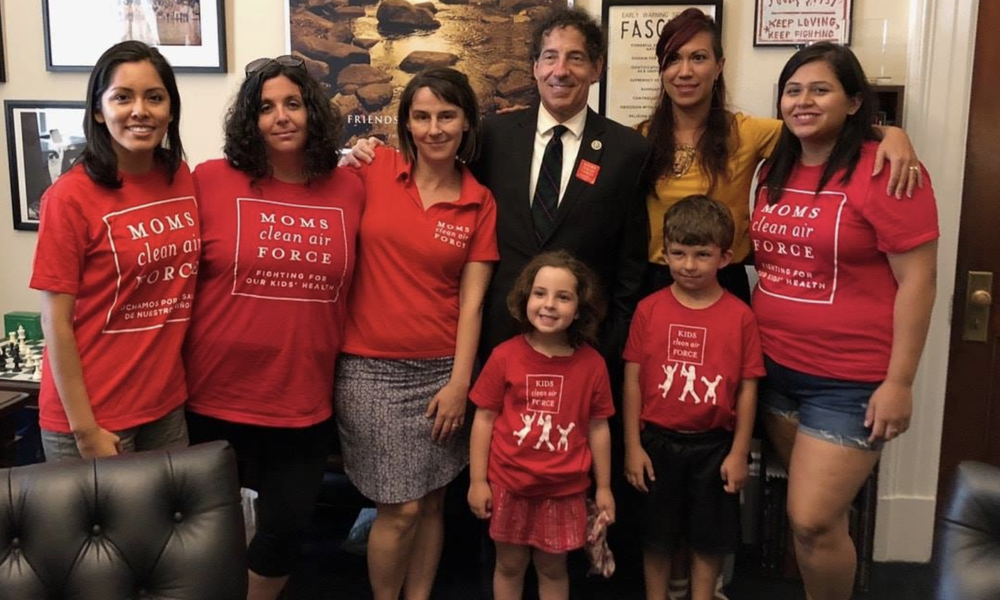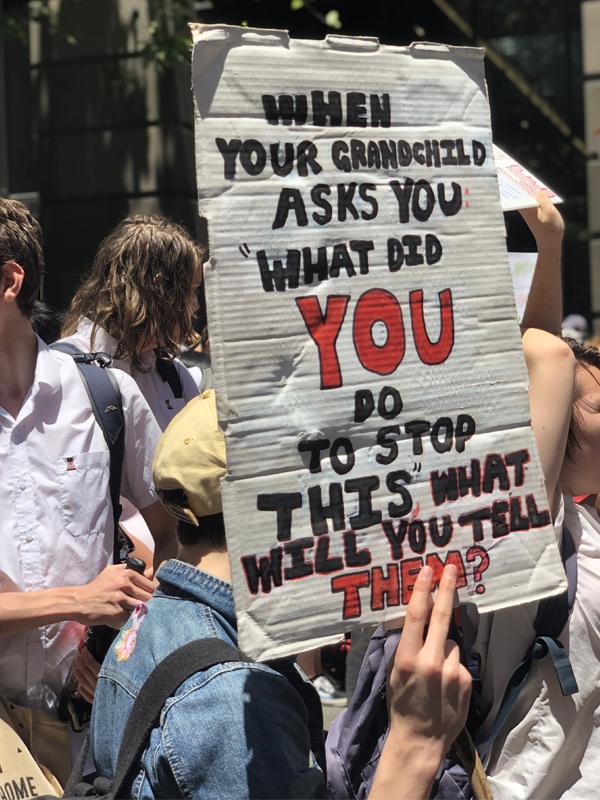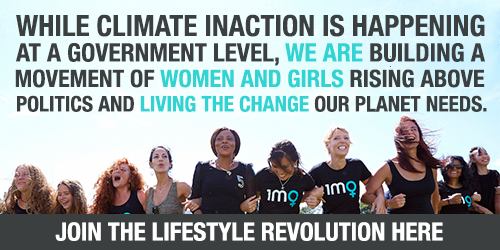In November, 2018, 15,000 Australian kids went on strike from school to demand stronger action on climate change. Other actions will follow, with the next climate strike planned for March, 2019. Listening to these kids speak, it is clear that they are articulate and informed. They include school captains and future doctors, leaders and business people; not the kind of kids who'd routinely skip school. But without the power to vote they are worried about their future, frustrated with inaction on climate change and desperate to be heard.
It is wrong that it has fallen on the kids to do this. As one young speaker said, “We are expected to tidy up after ourselves. Adults should tidy up their own mess, not leave it for us. This is not fair”.
"Not fair" is an understatement. The mess we are leaving for our children, if we don't act immediately, will manifest as more frequent and severe droughts, bushfires and floods, ecological collapse and extinction of many species. What's more is the spread of tropical diseases, ocean acidification, food and water shortages, millions of lives lost, economic and social problems, large areas of the world rendered uninhabitable due to rising sea levels, and the ensuing mass migration of climate change refugees.
A mess of this magnitude is not inevitable though. Scientists tell us the worst impacts of climate change can be averted if the world acts urgently. They give us six to 12 years to bring carbon emissions down to safe levels. The knowledge and much of the technology is already available, but political will is lacking.
With our kids' world at stake, it's surprising there isn't yet a global parents' climate movement. In the United States, there are Mothers Out Front, Moms Clean Air Force and Climate Parents all chipping away to make change. But we have so far not seen any worldwide parents' action on scale even remotely approaching the recent kids' actions.
Why are we leaving this up to our kids? If there's one thing that all parents have in common it is surely that we care about our children above all else; the protective instinct of mums and dads taking action en masse could be a force to be reckoned with.
There are many ways that parents can support their kids in the fight for the future, and not all of them require a lot of effort.

[Image: Moms Clean Air Force]
Break the ice
Start talking about climate change. A recent survey by the Australia Institute showed that over 70 per cent of Australians are concerned about climate change, so why aren't more of us talking about it? Studies show the more people hear others talk about the risks associated with climate change, the more they will perceive it as a threat and the more likely they are to consider taking action.
Research also demonstrates that the "messenger" is often more important than the "message" in influencing people's beliefs and behaviour, and that people's social identity has a huge influence over their behaviour and views. This means that anything you say to your friends and colleagues is likely to make a bigger impression on them than anything they hear in the media. If you are concerned about the impact of climate change on your children, start bringing it into everyday conversation – there is no excuse not to now that the kids have got the ball rolling.
Support the kids
Our kids shouldn't have to go on strike to protect their future, but since they've started it, encourage your children to be involved if they show interest. Research indicates that students involved in activism report greater levels of happiness and fulfilment than their non-activist peers. Renowned author and psychologist Steve Biddulph says that being involved in activism has real mental health benefits, allowing people to transform feelings of despair and helplessness into empowerment.
Even if you don't have school aged kids that are involved in the action, the School Strike for Climate Action group have published a great list of logistical, technical and other ways you can help support the movement.

Get involved
Nina Roberts, mum of two and climate action campaigner, emphasises the importance of finding others to team up with to prevent feelings of overwhelm and powerlessness. You can achieve this by joining one of the many large national groups advocating for climate action or a local group, or even starting your own local parents' climate action group like Nina, who founded the group Newlands Parents for Climate Action: "We have letter writing sessions, attend protests as a group, and write a regular column on climate news in the school newsletter. We strive to grow community awareness and to be advocates for more ambitious political leadership."
Roberts explains that she was motivated to act "by the thought of explaining to my kids in the not-too-distant-future, that I hadn't given it everything I had to try to avert disaster while there was still time".
Nationally, there are fledgling groups that represent parents' voices and are expected to grow in the near future, including Australian Mums for a Safe Climate and Australian Parents for Climate Action.
Write away
You can write to newspapers, to the prime minister and opposition leader, or to your MP, expressing support for the kids' requests, which are: (1) No new coal or gas, (2) a transition to 100% renewables by 2030 and (3) stop the Adani coal mine. Experienced campaigners agree that this is an important way of changing the public conversation; every letter counts.
In an immensely powerful talk at a kids' climate rally in Finland, fifteen year old Greta Thunberg said: "This is a cry for help… The future of all the coming generations rests on your shoulders. What you do now we children can't undo in the future. Our lives are in your hands."
Parents, it's time for us to step up.
Eve White is a mum of two and a freelance editor with a PhD in Ecology. She is a founding member of Australian Mums for a Safe Climate and Australian Parents for Climate Action.

